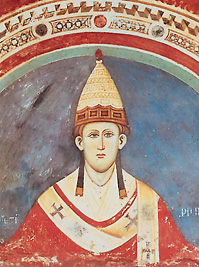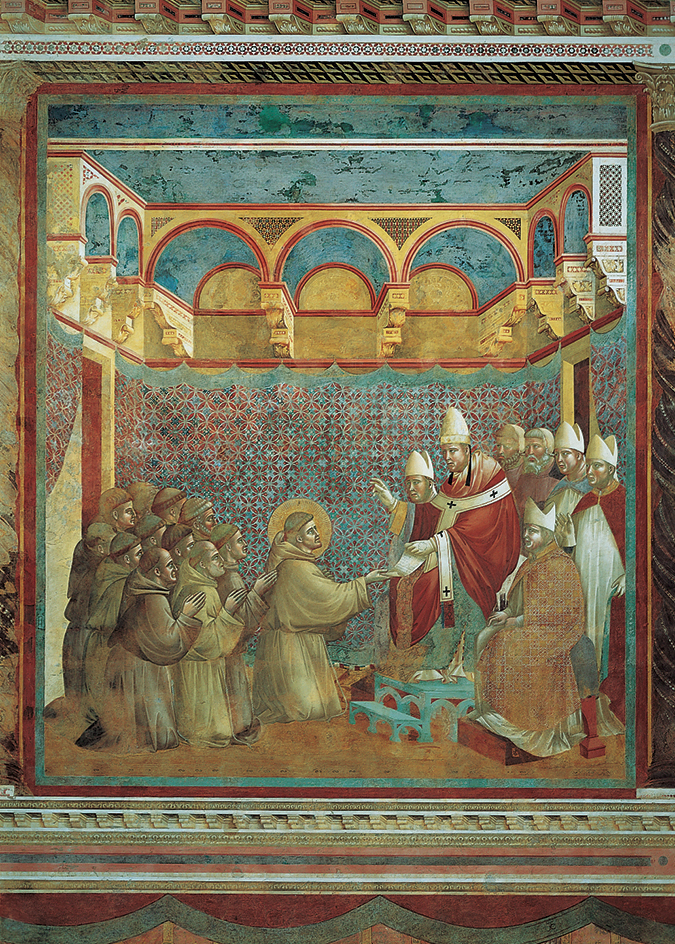Innocent III (1160?-1216) often is considered the greatest pope of the Middle Ages . His most significant historical contribution was a doctrine (teaching) of papal (the pope’s) authority that still defines papal power.
Imperial power.
Innocent was elected pope in 1198. At that time, he had to handle an unstable political situation. The Papal States were in chaos, and there were two rival claims for the throne of the Holy Roman Empire . Innocent restored papal authority to the Papal States. He also cleverly played the candidates for Holy Roman emperor against one another. About 1212, Innocent chose to support Frederick II as emperor. Innocent used the dispute to claim for the pope the right to examine and approve those elected to the imperial (empire’s) throne.
Innocent involved himself in French and English affairs. He declared that the pope could judge secular (nonreligious) “matters of sin,” a broad definition that could include almost any matter. Innocent expelled King John of England from the church after John refused to recognize Innocent’s appointee for archbishop of Canterbury , Stephen Langton . In 1213, John submitted to the pope. He surrendered England and Ireland to Innocent and received them back as papal fiefs—that is, land held on condition of giving services to its owner.

Crusades.
The crusade was an important element of Innocent’s policies. He called for new crusades to liberate Jerusalem from Muslim rule. But the Fourth Crusade (1202-1204) instead conquered Constantinople, the center of eastern Christianity . Innocent hoped the Fourth Crusade might lead the Eastern and Western churches to reunite, but this reunification did not occur. In 1208, Innocent launched a crusade against the Albigenses , an extreme religious group in southern France , and stopped the spread of their heresy (beliefs rejected by the church).
Spiritual authority.
Innocent did much to strengthen papal authority in the church. He reorganized the Roman Curia, the pope’s administrative arm, and created an international court to hear appeals from throughout the Christian world. He also approved the first official collection of canons (church laws). Innocent created a new vision of papal power. He called the pope the “Vicar of Christ ,” meaning Christ’s representative. He described the pope as being below God , but above all other people.

Innocent called one of the most important general councils of the Middle Ages, the Fourth Lateran Council, which met in 1215. The council enacted 70 decrees (laws) regulating church affairs. Innocent was born in or near Agnani, Italy . His given and family name was Lothar of Segni. He died on July 16, 1216.
